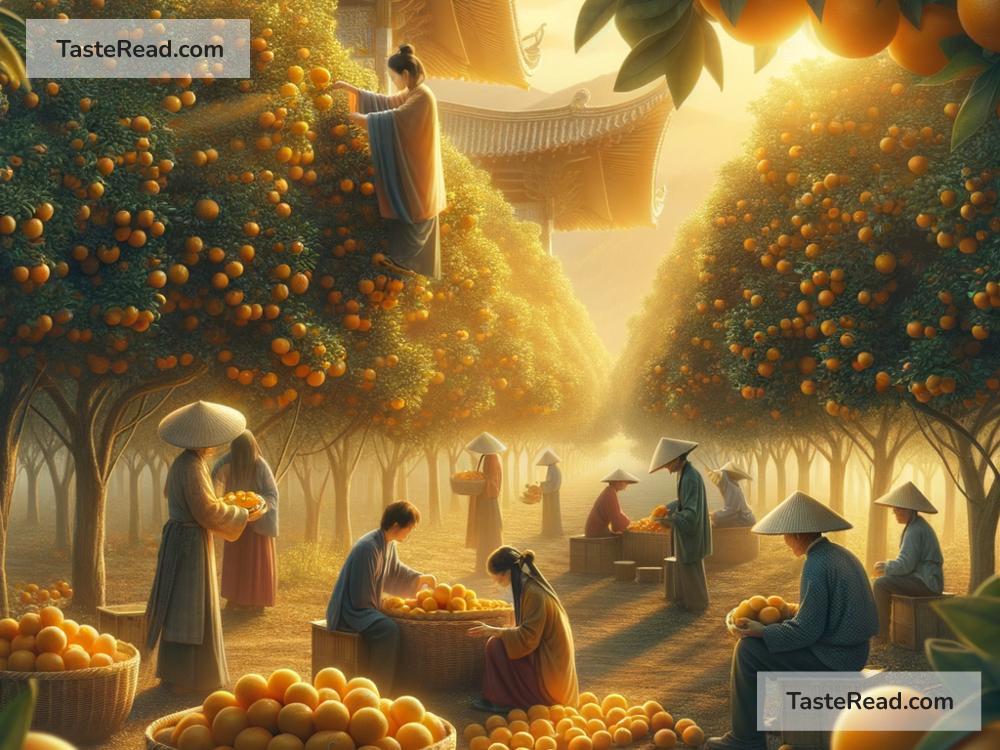The Fascinating History of Oranges in Ancient China
Oranges are one of the world’s most popular fruits, loved for their sweet taste and refreshing flavor. But did you know they have a fascinating history that dates back thousands of years? In ancient China, oranges were much more than just a tasty treat. They symbolized good fortune, played important roles in rituals, and even had medicinal uses.
Origins of Oranges in Ancient China
Oranges trace their roots to Southeast Asia, but it was in China where they truly flourished. Long before oranges became a global favorite, ancient Chinese farmers cultivated citrus fruits like mandarins and pomelos. Mandarin oranges (sometimes called tangerines) are considered one of the oldest varieties, and they are believed to be native to southern China.
China’s warm and humid climate was perfect for growing citrus fruits, especially in regions like Guangdong, Fujian, and Guangxi. Over time, orange cultivation spread across the country and became an integral part of Chinese agriculture.
Oranges as Symbols of Luck and Wealth
To the ancient Chinese, oranges were more than just a fruit—they held deep symbolic meaning. The bright, golden color of an orange reminded people of gold and prosperity. It was believed that eating oranges or giving them as gifts could bring good fortune and happiness.
Even today, oranges are important during the Chinese New Year. Families decorate their homes with orange trees or display bowls of mandarins. The Chinese word for “orange” sounds similar to “wealth” or “luck” in some dialects, making oranges a powerful symbol of abundance.
Rituals and Offerings
In ancient times, oranges were often used in ceremonies and offerings to honor deities and ancestors. People would present oranges at altars as a sign of respect and gratitude. It was believed that the sweet and fragrant fruit could help ensure blessings and protection.
Oranges were also exchanged as gifts during special occasions. Offering oranges to someone was considered an act of kindness and a way to wish them success. This tradition has continued through generations and remains a cherished custom in Chinese culture.
The Medicinal Uses of Oranges
Ancient Chinese herbalists valued oranges for their health benefits. They believed that oranges could help balance the body’s energy, or “qi,” and restore harmony. In traditional Chinese medicine, dried orange peel (known as “chen pi”) was used to treat various ailments, including digestive problems and colds.
The peel was often boiled into teas or mixed with herbs to create remedies. Chen pi is still widely used in modern Chinese medicine and can be found in herbal shops across the country. The vitamin-rich fruit was also a natural source of energy for people, making it even more prized.
Trade and Spread of Oranges
Through centuries of trade and exploration, oranges began to spread from China to other parts of the world. Early trade routes like the Silk Road played a significant role in the movement of goods, including citrus fruits. As merchants traveled west, they brought oranges to new regions, introducing them to people in Central Asia and the Middle East.
Eventually, oranges found their way to Europe, where they became a luxury fruit for nobility and royalty. The knowledge of Chinese orange cultivation also inspired farmers in other countries to grow citrus fruits, making them an international delicacy.
Oranges in Art and Literature
Oranges have been celebrated in Chinese art and literature for centuries. Ancient poets and writers often used oranges as a symbol of beauty, happiness, and renewal. The fruit’s vibrant color and round shape inspired artists to paint them in scrolls and decorative works.
In some poems, oranges represented the passage of time or the arrival of spring after a long winter. Their sweet aroma was often described as a reminder of nature’s gifts. These artistic interpretations added even more cultural significance to the humble orange.
Legacy of Oranges in China Today
Today, China remains one of the largest producers of oranges in the world. The country grows millions of tons of citrus fruits each year, offering a wide variety of oranges, mandarins, pomelos, and other citrus fruits to local and international markets.
Oranges continue to be an important part of Chinese traditions and daily life. Whether eaten fresh, squeezed into juice, or used in cooking, they remain a symbol of health, wealth, and joy.
Conclusion
The history of oranges in ancient China is more than just a story of agriculture—it’s a tale of culture, symbolism, and connection. From their humble beginnings in southern China to their worldwide fame today, oranges have been cherished for their beauty, flavor, and meaning.
So, the next time you enjoy an orange, take a moment to appreciate its fascinating journey through history. It’s a fruit with deep roots in Chinese civilization, and its legacy continues to shine bright, just like its golden color.


